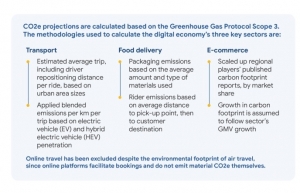Cashless payments in e-commerce to account for 50 per cent by 2025
 |
| Cashless payments in e-commerce to account for 50 per cent by 2025. (Photo: tapchitaichinh.vn) |
Hanoi – The Ministry of Industry and Trade (MoIT) has set a target to increase the cashless payment ratio in e-commerce, especially e-payments through payment intermediaries or applications, to 50 per cent by 2025.
As part of efforts to implement the national plan on e-commerce development, the ministry has set ambitious targets for non-cash payment in e-commerce activities.
Another goal is to raise the ratio of payments conducted through payment intermediary service providers to 80 per cent of non-cash payments in e-commerce activities by 2025.
According to the Centre for Information and Digital Technology (CID) under the MoIT’s E-commerce and Digital Economy Agency (iDEA), the centre has been and will continue to implement various solutions, and develop infrastructure facilities to promote non-cash payments, including the National E-commerce Payment System (Keypay).
In addition, the centre will also focus on researching and developing a secure payment system for e-commerce activities based on the commercial arbitration (ESCROW) method, toward protecting both consumers and sellers in non-cash payment transactions.
To support all parties involved in secured online payment transactions, the centre planned to launch a system that will ensure transaction security in e-commerce activities, which aims to protect consumers' rights in the digital environment and safeguard the interests of all parties involved in online transactions.
The ratio of e-payments via ESCRO is expected to rise, while the rate of cash-on-delivery (COD) payment is projected to decrease.
Attention will be also paid to increasing reliability, thus promoting transactions; resolving disputes with a clear legal basis; and protecting the interests of both buyers and sellers.
Transactions conducted without the involvement of intermediary payment service providers, such as bank transfers, cash deposits at service counters, and postal money transfers, currently make up a significant portion of non-cash payment transactions, the centre said.
This poses potential risks for consumers during transactions because when the goods/services fail to meet requirements, sellers may not accept returns, and consumers may also be unable to complain or be protected in such transactions.
The main reasons for this are the shopping habits of consumers who still use cash, the low trust of consumers in e-payment infrastructure supporting e-commerce activities, and the lack of consistent and coherent measures to protect consumers and sellers in non-cash payment transactions.
 | TikTok Shop dethrones Lazada in Vietnam's e-commerce sector Having launched just last year, TikTok Shop has rapidly ascended the ranks in Vietnam's e-commerce sector, dethroning Lazada from its position as the second-largest platform by revenue, according to the latest data from market analyst firm, Metric. |
 | E-commerce groups engage in effective green strategies Although Vietnam’s e-commerce has recorded remarkable growth in recent years, related businesses are scrambling to improve sustainability due to a lack of suitable regulations. |
 | E-commerce boosted to fuel sale of Vietnamese goods The internet economy of Vietnam posted the fastest growth in Southeast Asia, from 18 billion USD in 2021 to 23 billion USD in 2022, according to a recent report on regional economies. |
 | Social media platforms take over e-commerce in Cambodia Social media is rapidly taking over the e-commerce sector in Cambodia with almost all local businesses promoting their services using social media platforms, a latest market report has revealed. |
 | E-commerce tax compliance required Local authorities have announced intentions to reinforce tax declarations and payments, as numerous e-commerce platforms have been found to provide inadequate tax information. |
What the stars mean:
★ Poor ★ ★ Promising ★★★ Good ★★★★ Very good ★★★★★ Exceptional
 Tag:
Tag:
Related Contents
Latest News
More News
- Rising consumption and travel fuel ‘Tet season’ stocks (February 11, 2026 | 11:43)
- Education as strategic capital: why Dwight School Hanoi represents a long-term investment in Vietnam’s future (February 10, 2026 | 19:00)
- Green logistics–the vital link in the global energy transition (February 09, 2026 | 19:35)
- Wages and Lunar New Year bonuses on the rise (February 09, 2026 | 17:47)
- Temporary relief for food imports as businesses urge overhaul of regulations (February 07, 2026 | 09:00)
- Opella and Long Chau join forces to enhance digestive and bone health (February 06, 2026 | 18:00)
- Vietnam-South Africa strategic partnership boosts business links (February 06, 2026 | 13:28)
- Sun PhuQuoc Airways secures AJW Group support for fleet operations (February 06, 2026 | 13:23)
- Pegasus Tech Ventures steps up Vietnam focus (February 05, 2026 | 17:25)
- The generics industry: unlocking new growth drivers (February 04, 2026 | 17:39)




















 Mobile Version
Mobile Version